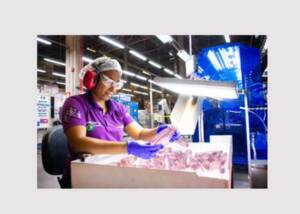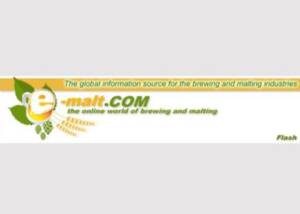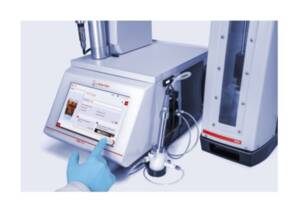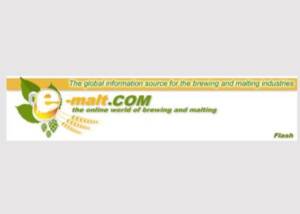Coca-Cola bottling company achieves record sales
News General news
Coca-Cola Europacific Partners Deutschland (CCEP DE) is responsible for the bottling, sale and distribution of Coca-Cola branded products in Germany. With 4.1 billion litres of beverages, Germany's largest beverage company achieved record sales in 2023. CCEP DE also increased its turnover by 12.5 per cent compared to the previous year. John Galvin, CEO of CCEP DE, explains: "We can look back on a very good year in Germany, in which we significantly expanded the range of our popular beverages, especially in grocery stores, discounters and petrol stations. With our result in Germany, we are contributing to the successful overall result of Coca-Cola Europacific Partners."
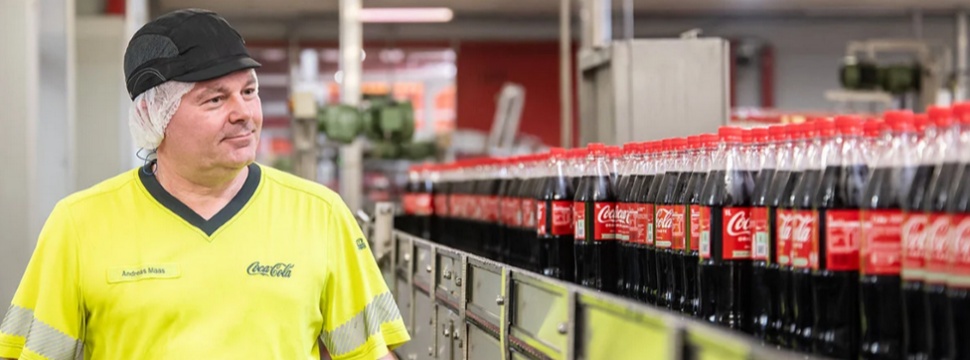
Coca-Cola is the No. 1 growth driver for the German retail sector
Among consumer goods manufacturers in Germany, CCEP DE achieved the highest year-on-year sales growth for retailers in 2023, according to Nielsen. "A great result of the collaboration with our retail customers, which shows how we are working hard to create shared value," continues Managing Director Galvin. "Branded products such as Coca-Cola drinks bring people into the market, generate sales and margins for retailers and, not least in times of crisis, brands are also anchors of trust."
On trend: sugar-free drinks, sports drinks and energy drinks
In addition to the Coca-Cola classics, sugar-free and reduced-sugar drinks were particularly popular last year, especially Coca-Cola Zero Sugar, as well as Fuze Tea iced teas, Powerade sports drinks and Monster energy drinks. Every third Coke sold in 2023 was one of the sugar-free variants Coca-Cola Zero or Coca-Cola light. Around three quarters of the new products for the German market in the past three years were sugar-free or sugar-reduced. This year, too, there will be new sugar-free drinks from Coca-Cola. Iced teas, sports drinks and energy drinks remain the growth drivers among non-alcoholic beverages: Fuze Tea, Powerade and Monster achieved double-digit growth in sales and turnover last year.
95 years: Coca-Cola is firmly anchored in Germany - produces, employs and invests regionally
Coca-Cola has been producing soft drinks in Germany since 1929. Galvin explains: "We bottle our drinks regionally in 14 plants in Germany. That is one of our greatest strengths." The manufacturer's 27 sites, including the 14 production plants, are located in many regions of the country. Around 6,500 people are employed at CCEP DE. Last year, a significant proportion of the company's investments totalling 170 million euros went into the production and logistics network. Investments totalling around 165 million euros are planned for this year. Among other things, a new returnable glass line is to go into operation at the production site in Lüneburg and a returnable PET line at the Bad Neuenahr site is to be recommissioned.
Tailwind for 2024: "Economic environment remains challenging"
"The successful financial year gives us an important tailwind for the months ahead," says Galvin. "The economic environment and the cost pressure along our supply chain remain challenging. However, consumer sentiment could improve again over the course of the year as real wages rise and inflation falls. Highlights such as the European Football Championship in our own country can make a difference here." Coca-Cola will accompany the UEFA EURO 2024 as a partner with large-scale activations and promotions in retail and the out-of-home market and create unique experiences for fans.
Coca-Cola will also be launching new products on the market in 2024 - mostly sugar-free and sugar-reduced, as well as Monster Energy and Absolute Vodka Sprite in the area of alcoholic ready-to-drink beverages.
"Ultimately, we want to take the next steps towards our goal of being climate-neutral by 2040 by 2024. We are continuing to invest in digital solutions, in our returnable bottling, in more recycled material for our non-returnable PET bottles, in shifting beverage transport to rail and in water and energy-saving measures at our 14 regional production sites, among other things," reports Galvin.

